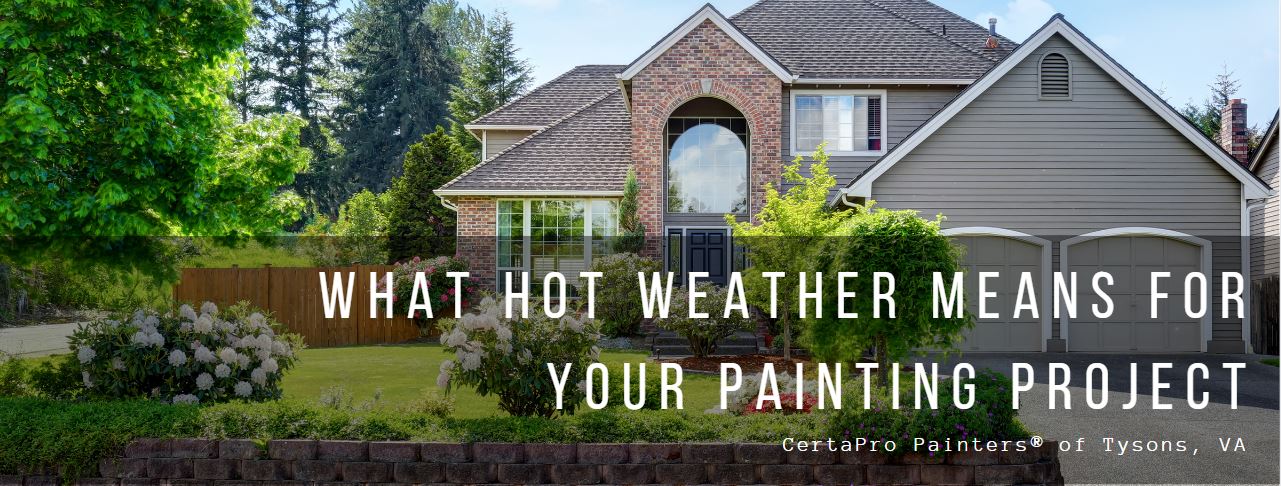
What Hot Weather Means for Your Painting Project
Posted on June 9, 2020
Many homeowners undertaking a home painting project assume that warmer weather means the paint will dry faster and projects will turn out better. While some heat can help, our summers can get downright scorching. That can actually negatively affect the outcome of your work. Don’t risk the job! Our exterior painting experts lay out what hot weather means for your painting project. Here in Virginia, July on average is the hottest month of the year, June and August both also can have hot days depending on the year.
Good News for Warm Weather Painting
When completing repairs prior to painting, spackle, primer and joint compounds dry more quickly when the mercury rises. This can allow this portion of the job to be done faster.
Paint dries quickly, which can allow two or three coatings to be put on in a single day.
It’s much more comfortable to open windows for interior jobs. This whisks smells away and keeps everyone safer.
Warmer paint is thinner, typically making it easier to apply in an even coating. This is great to help novice painters get a thin even coating on their first attempt.
Bad News for Warm Weather Painting
Hot temperatures can make paint dry too quickly. This causes speckling and an uneven finish.
If the paint dries while you are putting it on, the overlapping sections can be visible after drying.
Paint films that form too quickly give you the impression that the paint is dried. If you attempt to paint the second coating on, you could peel the film making a big sticky mess.
Dangers for Warm Weather Painting
For paint to set, liquid must slowly be released from the film. If the temperatures are too high, the water evaporates too quickly and won’t allow the pigment and resin to fuse properly to the substrate. This results in paint failure with cracked paint being the main identifier.
When you are working inside in hot temperatures, heat rises. Painting inside without proper ventilation can cause paint fumes to collect near the ceiling, meaning anyone on a ladder will be breathing in those fumes.
Painting Techniques for Warm Weather Painting
On exterior jobs, start work as early in the morning as is possible. Be sure to wait for dew to evaporate. Work your way around the home, in shaded spaces if possible. This will reduce both the temperature of the ambient air as well as the temperature of the structure you are painting.
For interior work, paint from top to bottom. Aim to complete ceilings and tops of walls while before the sun of high noon hits. This keeps you out of the fumes that rise to the top of the room as it gets hotter.
For interior and exterior jobs, if the area is particularly stagnant, place fans where possible to disperse fumes and move air.
Schedule an Estimate
Our teams are experts at working with the hotter temperatures over the summer months. Allow us to use our expertise to help you get the best results. Schedule a free, no-obligation estimate with us today.





